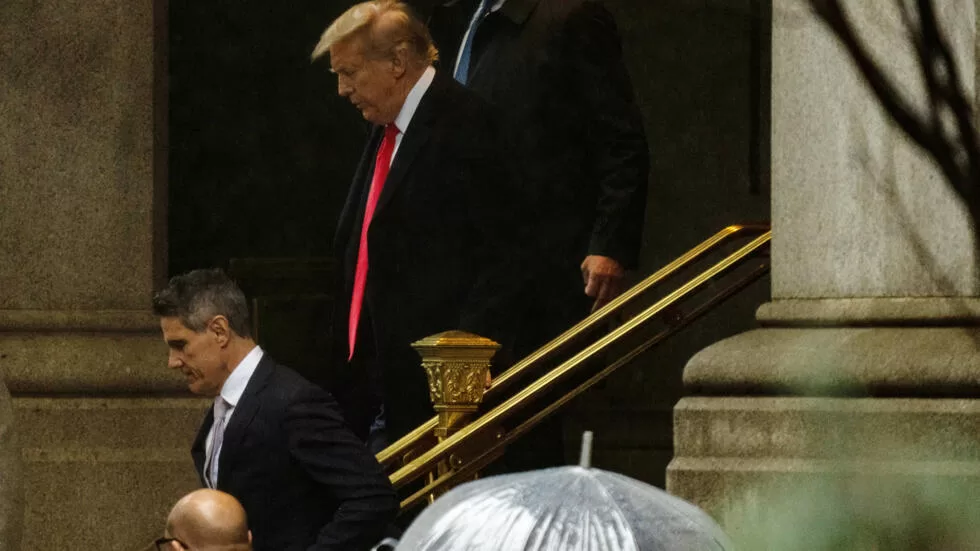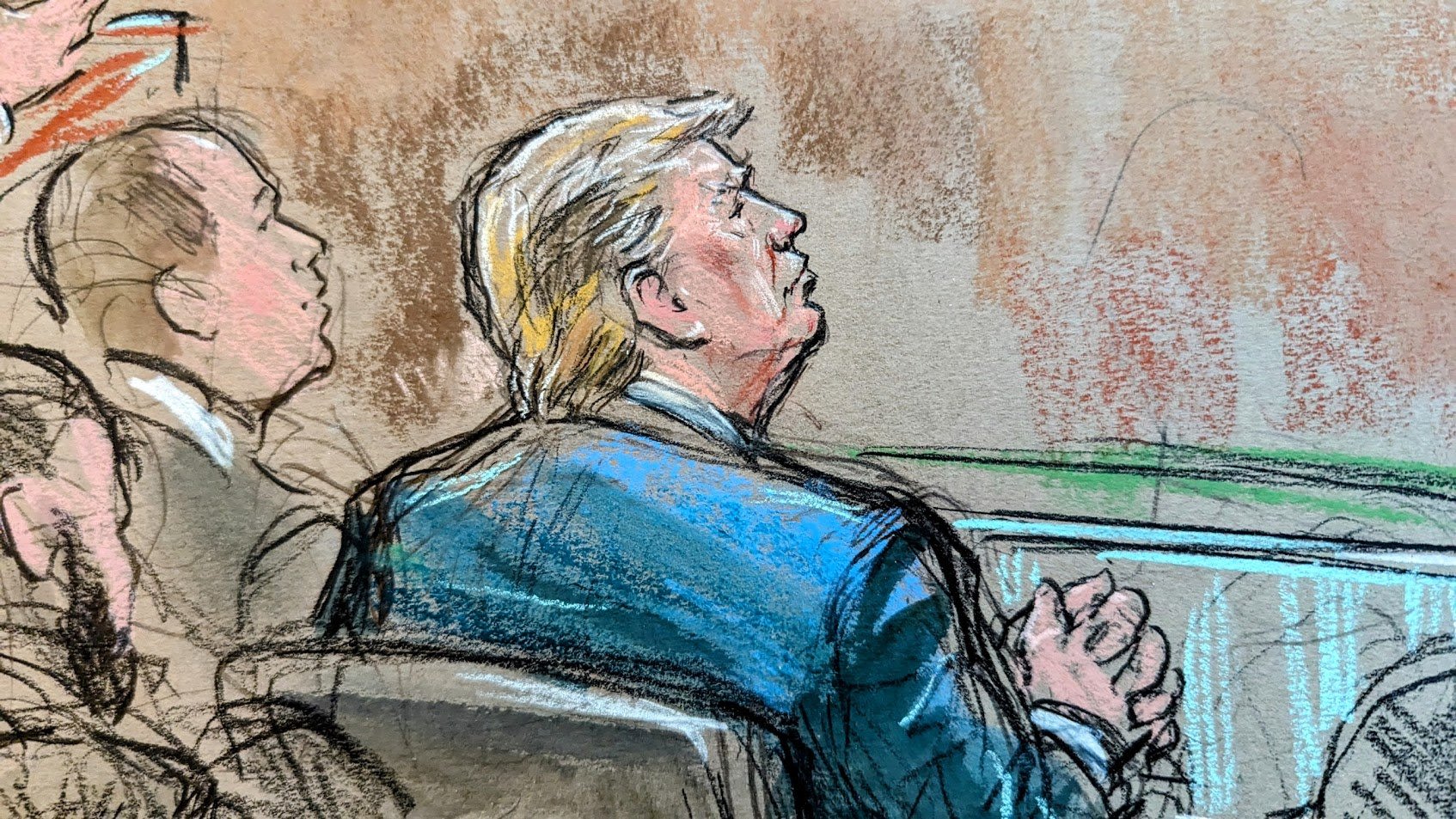
A federal appeals panel raised serious concerns about the potentially drastic ramifications of total presidential immunity on Tuesday, expressing strong scepticism towards Donald Trump’s claim that he cannot be charged for attempting to rig the 2020 election.
Due to his immunity from prosecution, Trump’s attorneys contended that the federal election subversion accusation against him should be dropped. However, the three justices on the panel of the US Court of Appeals for the District of Columbia Circuit questioned whether presidents would be able to sell pardons or even murder political opponents under the immunity premise that Trump’s attorneys were promoting.
The team led by special counsel Jack Smith contended that the president is subject to the law, stating that it would be “awfully scary” if there was no criminal system in place to prevent future presidents from usurping the vote and staying in office and that granting presidential immunity from prosecution would open a “floodgate.”
Nevertheless, the justices questioned whether they had the authority to rule on presidential immunity at this juncture in the case. Trump’s trial for his part in attempting to rig the 2020 election is set for March. He entered a not-guilty plea.
Trump’s decision to show up for the hearing serves as a reminder of the influence his four criminal indictments are having on his bid for president.
A Supreme Court debate over presidential immunity is probably going to be triggered by the verdict of the appellate court. Although the judges have not set a timeframe, it is doubtful that they will take too long considering the circumstances.
The following are the main conclusions from Tuesday’s oral arguments:
Judges are concerned about Trump’s immunity argument’s reach and implications.
John Sauer, the lawyer for Trump, was questioned sharply by the Circuit Court justices over Trump’s assertion that he is immune from prosecution since his acts during the 2020 election were within the scope of his presidential duties. The justices also questioned his assertion that Trump could only be charged with a crime if Congress first impeached and found him guilty of the same offences.
President George H.W. Bush’s appointment, DC Circuit Court Judge Karen Henderson, seemed doubtful that Trump was carrying out his official duties.
Henderson said, “I find it ironic to suggest that his constitutional obligation to ensure that the laws are faithfully carried out permits him to break the law.”
Several justices refuted Trump’s claims of immunity by emphasising the potentially hazardous direction that it may go, allowing presidents to disobey the law in the future with impunity.
This demonstrated their general scepticism towards Trump’s viewpoint and indicated that they agreed more with District Judge Tanya Chutkan’s conclusion, which strongly refuted Trump’s claim of total immunity.
Sauer was asked some startling hypothetical questions by Judge Florence Pan, a nominee for President Joe Biden, to clarify the parameters of his immunity claim. According to his legal theory, past presidents are immune from punishment for their official activities if Congress does not first impeach and convict them.
Could a president give the order for SEAL Team Six to kill a rival politician? Is it an official directive to SEAL Team Six? Pan enquired.
Sauer declared, “He would have to be, and would swiftly be impeached and found guilty before the criminal prosecution.”
Pan said, “I asked you a yes-or-no question.”
“If he were impeached and found guilty first,” remarked Sauer. She went on to state that prosecution could not begin until the “political process” of impeachment had “taken place.”
Pan also pelted Sauer with hypothetical questions over whether a president selling military secrets to an adversary state or pardoning criminals would fall under the purview of his immunity argument.
James Pearce, the assistant special counsel, subsequently noticed the judges’ train of thought.
According to Pearce, “it would be awfully scary if there weren’t some sort of mechanism” to indict future former presidents who attempted to retain their positions of authority after losing an election.
Trump’s legal representative Sauer contended that a president may only face criminal charges and go to trial if found guilty of the accused Senate activities. The Senate had cleared him in February 2021.
Pan pressed Sauer to admit that he was acknowledging that there is a route for presidents to be prosecuted, challenging his claim that impeachment and congressional conviction were prerequisites for any criminal prosecution.
understand the impeachment judgment clause correctly.” said Pan.
“Your argument of the separation of powers vanishes once you concede that presidents may be sued in specific circumstances, and the only issue that remains to be resolved is whether you
The court observed that while senators were debating whether to convict Trump after his impeachment, many of them based their decisions on the notion that the Justice Department would be in charge of conducting an investigation into the president’s behaviour after the 2020 election.

After the session on Tuesday, Sauer reiterated that if a former president was found guilty by the Senate during the impeachment process, they may face charges for “official acts.”
Pan questioned, “If the president was impeached and found guilty of inciting an uprising, could the government then file a lawsuit for the same or similar actions?”
Right, Sauer said.
Sauer illustrated the idea of indicting previous presidents for acts they committed while in office, describing it as a risky “Pandora’s box.” He contended that the decision by special counsel Jack Smith to file charges against Trump would result in other cases along these lines.
He issued a warning, saying that there was a chance that Biden, Barack Obama, or George W. Bush might face legal action in this matter.
“Permitting the prosecution of a president for his official actions would unleash a Pandora’s box that this country might never be able to close,” said Sauer.
According to Sauer, “it would authorise, for example, the indictment of President Biden in the Western District of Texas after he leaves office for mismanaging the border, allegedly,” if the judges decide against total presidential immunity.
Sauer extended the hypotheticals by looking back in time and suggesting that former presidents may face legal repercussions for some of their most contentious official deeds.
Could George W. Bush face charges of obstructing an official procedure for allegedly providing Congress with misleading information to persuade the country to wage war in Iraq on false pretences? Is it possible to bring murder charges against President Obama for allegedly approving drone attacks that target American citizens abroad?
The judges questioned Trump’s lawyer about whether they ought to even be considering his claims of immunity before his trial ends, even before they heard the bulk of his arguments on Tuesday morning.
“May I just get a few things on the record before you get started? An amicus curiae disputed our jurisdiction. Henderson questioned Sauer about “your reply brief, which seems to be questioning (our decision to review the immunity claims)” about a friend-of-the-court brief that American Oversight, a monitoring group, had submitted.
The organisation said that the appellate court lacks jurisdiction to consider Trump’s appeal of his immunity before trial. According to the organisation, the matter ought to be left for appeal following the trial unless a clear constitutional or legislative guarantee is mentioned that would prevent the trial from taking place.
The argument provides an avenue for the appeals court to temporarily avoid dealing with the immunity question. The judges may be interested in taking that path, based on the fact that they raised the matter. However, if they did and Trump was found guilty, the matter would probably come up again eventually.
Not only does Trump’s legal team feel that the appeals court has jurisdiction to consider the immunity question at this time, but the special counsel’s team also thinks that the intermediate court can examine the case before the conclusion of Trump’s trial.
Pearce began his Tuesday arguments against Trump’s claims of immunity by telling the justices, “It is our view that the court has and should entertain both claims before it.”
The justices turned down the special counsel’s office’s attempt to move the case directly to the Supreme Court instead of the appeals court.
Trump was present at the hearing on Tuesday, but he was not seen as he entered and left the courthouse in Washington, DC, where audio of the proceedings was aired but cameras were not allowed.
Smith, who was also present at the hearing on Tuesday, was seated around 20 feet away from Trump at the defence table. Trump was taking notes and giving them to Sauer during the special counsel’s presentation.
The former president’s choice to show up for the hearing on Tuesday, even though the Iowa caucuses are less than a week away, highlights both Trump’s commanding lead in the polls and how fighting the criminal proceedings against him has turned into a key component of his campaign plan.
On Wednesday, Trump is scheduled to travel to Iowa for a Fox News town hall. However, on Thursday, he will come back to New York to witness the closing arguments of his civil fraud trial. The state attorney general of New York is attempting to obtain $370 million in damages and to prevent Trump from conducting business in the state.
Following the hearing, Trump proceeded to the location of his former hotel in Washington, DC, to make an on-camera statement.
Trump declared, “I think it’s very simple that you have to have immunity as a president.”
